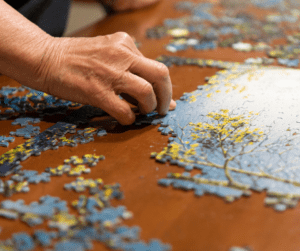Navigating Moving a Loved One from Assisted Living to Memory Care
February 28th 2024
Caring for a loved one with dementia or Alzheimer’s presents unique challenges that often require thoughtful adjustments to their living arrangements. As their cognitive abilities decline, the need for specialized care becomes increasingly apparent. Recognizing when to transition from assisted living to memory care is a crucial aspect of ensuring the well-being and safety of your loved one.
Understanding Assisted Living and Memory Care:
Assisted living communities are designed to support seniors who need help with daily activities, such as bathing, dressing, and medication management. These facilities offer a level of independence while assisting as needed. On the other hand, memory care communities are specifically tailored for individuals with dementia or Alzheimer’s, offering a higher level of supervision, specialized activities, and safety measures.
Signs That It’s Time for the Transition:
- Safety Concerns: One of the first signs it may be time to consider memory care is an increase in safety concerns. If your loved one is frequently getting lost, experiencing falls, or forgetting to turn off appliances, their safety may be compromised. Memory care units are equipped to address these safety concerns with secure environments and trained staff.
- Escalating Cognitive Decline: As dementia progresses, cognitive decline becomes more pronounced. If your loved one is struggling with basic tasks, forgetting the names and faces of family members, or displaying signs of increased confusion, memory care may be better suited to provide the specialized attention and structured routines they need.
- Agitation or Aggressive Behavior: Individuals with dementia may exhibit challenging behaviors, including agitation, aggression, or wandering. If these behaviors become frequent and challenging to manage within an assisted living setting, memory care professionals are trained to handle such situations with specialized techniques and a higher staff-to-resident ratio.
- Decline in Personal Care Abilities: A decline in the ability to perform personal care activities, such as bathing, grooming, and dressing, may signal the need to transition to memory care. Memory care communities are staffed with professionals trained to assist residents with dignity and respect, understanding the unique needs associated with dementia.
- Social Isolation: Social engagement is crucial for the well-being of seniors. If your loved one is withdrawing from social activities or struggling to communicate effectively with others due to cognitive decline, memory care can offer specialized programs and activities designed to stimulate cognitive function and foster social connections.
- Consultation and Communication: Before making the decision to move your loved one from assisted living to memory care, it’s essential to consult with healthcare professionals, the assisted living staff, and family members. Discuss the observed changes in your loved one’s behavior and cognitive abilities. Additionally, involve your loved one in the decision-making process to the extent possible, ensuring that their preferences and wishes are considered.
Transitioning a loved one from assisted living to memory care is a challenging decision, but it may be necessary to ensure their safety, well-being, and quality of life. Monitoring signs of cognitive decline, addressing safety concerns, and maintaining open communication with healthcare professionals can guide you through this process. By choosing the right level of care, you provide your loved one with the support they need to navigate the challenges of dementia with dignity and compassion.
At Grace Management, Inc., we provide your loved one with The Village Program® our
specialized Memory Care program. Our goal is to provide a memory care program with meaningful and enriching activities that create an environment of success for our residents. The Village Program® is designed to Reflect on memories and past accomplishments. Rejoice in the successes experienced every day. Renew their hope and spirits every day.
To learn more about The Village Program®, visit the communities page on our website and find a community near you.

